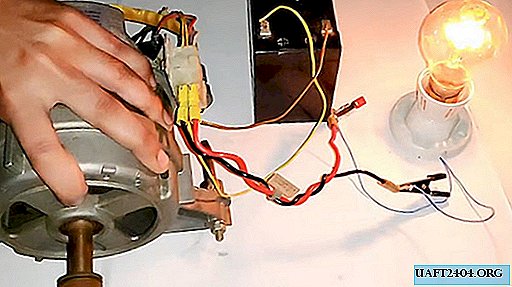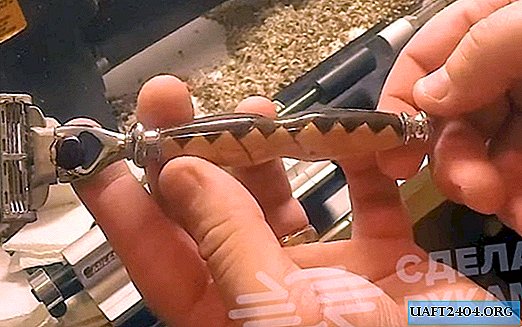Share
Pin
Tweet
Send
Share
Send

The electric motor from the washing machine is very easy to find in view of the fact that it rarely fails compared to other nodes, and the machines themselves are thrown into the landfill all the time. The thing is very valuable for home-made people, considering how many simple machines can be built on its basis.
This motor may well work as a generator. But unfortunately, just like that, he will not generate energy, since there is no permanent magnet in it that can create an EMF in its windings.
How to start the engine from the washing machine as a 220 V generator
The engine from the washer has the classic structure of a collector motor. And it can work both from direct and alternating current. It's all about managing it.
Typically, the motor from the washer has 6 pins on the connection block: the first pair on top is the tachometer sensor pins, we will not need them to control the speed. The second two in the middle - the output of the stator winding. The third lowest pair is the rotor pin.

To make the motor generate current, you need to apply some voltage to the rotor. This will create a magnetic field on it, which, in turn, during its rotation will create an EMF on the stator winding.
We connect the wires to the rotor, to which the power source will be connected in the future.

We connect the wires to the stator. To the ends of the wires - a multimeter for measuring the output voltage.

To show, turn the motor shaft without a source connected to the rotor.

As a result, the multimeter showed zero volts and this is understandable.
We connect the power source. The role of it will be a 3.7 V lithium-ion battery. Again, turn the shaft by hand.

The multimeter produced a certain value, which means that energy is generated.
Change the 3.7 V battery to a 12 V battery. Turn it by hand.

Result: the voltage rises.
To create a greater moment corresponding to the working speed of the engine, wind the winch onto the pulley.

Sod, creating a rotation.

Although the multimeter shows 75 V, in real life the voltage is greater, since the electronic device has a delay and is not able to calculate instantaneous surges of electricity.
For clarity, we connect an incandescent lamp to 220 V. We also wind the winch and pull it.

The light will flash for a short time.
Conclusion
The motor from the washing machine is quite hungry as a voltage generator, but it is difficult to “attach” it somewhere, since it: produces a constant current, requires high revolutions, requires additional power for operation, and if it stops, it needs to be disconnected somehow.
But there are pluses: the output current can be easily controlled by adjusting the current of the rotor circuit, there is no magnetic sticking, small size in comparison with permanent magnet generators.
Share
Pin
Tweet
Send
Share
Send











